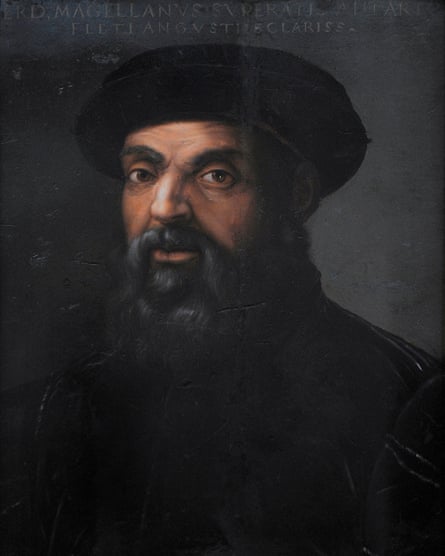Astronomers argue that Magellan, characterized as a violent colonizer, is not deserving of a place in the night sky.
Ferdinand Magellan has long been given a special honor. The renowned explorer’s name has been immortalized in the night sky. Two satellite galaxies of our Milky Way, visible in the southern hemisphere, are known as the Large and Small Magellanic Clouds.
Astronomers are calling for the removal of a celestial distinction that honors Magellan, the 16th century Portuguese sailor. They accuse him of committing acts of murder and enslavement, as well as burning down homes of Indigenous peoples while leading the first expedition to circumnavigate the globe. These astronomers argue that his name should not be associated with the clouds any longer.
According to Mia de los Reyes, an astronomer from Amherst College in Massachusetts, Magellan and his crew carried out brutal actions in Guam and the Philippines, such as burning villages and murdering the local people. Magellan was the leader of a 1519 Spanish expedition that successfully navigated to Asia through the Pacific, but he died during a conflict with indigenous individuals in what is now the Philippines in 1521.
In a recent publication in APS Physics, Reyes advocates for the International Astronomical Union, responsible for naming celestial bodies, to reconsider the names of the Magellanic Clouds. According to Reyes and many other astronomers, it is inappropriate for astronomical objects and facilities to be named after individuals with a history of violent colonialism, such as Magellan.
According to Professor David Hogg of New York University, it is not solely Magellan’s deeds that warrant the removal of his name from the heavens. He explains to Space.com that the main concern is that the clouds were not actually discovered by Magellan.

Native populations in the southern hemisphere were able to easily observe and identify these objects, giving them their own unique names. However, it wasn’t until the 1800s that they were officially named after the explorer.
“By honoring individuals like Magellan, whose actions and impact have caused harm, we are further ostracizing the communities that have been affected,” states Reyes.
Scientists are currently advocating for changes to be made to scientific names that are deemed offensive. This movement, which has been gaining momentum, aims to revise names that are associated with individuals like Hitler and Mussolini. The Observer recently reported on this issue and highlighted the push for taxonomic organizations to permit modifications to objectionable names.
Possible alternative names for the Magellanic Clouds are not specified. However, one proposed option is Milky Clouds.
However, where would this procedure come to an end? The adventurer’s name has also been given to the twin 6.5-m Magellan telescopes and the soon-to-be-constructed Giant Magellan Telescope, all located in Chile. Reyes is also advocating for their rebranding.
Moreover, a particular body of water on the planet bears the explorer’s name, but there is a possibility that the Magellan Straits may be renamed.
Scientists suggest that in the future, more caution should be exercised when naming stars or species. Many believe that these names should not be based on individuals, citing Nasa’s Mars robot rovers – Curiosity, Perseverance, and Spirit – which are named after ideals rather than people.
Source: theguardian.com


